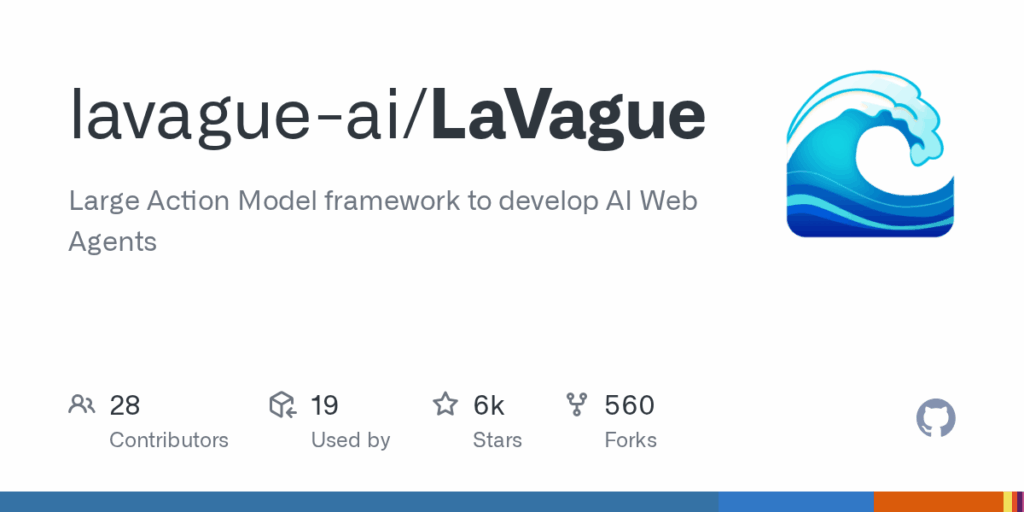LaVague
Basic Information
LaVague is an open-source framework for developers who want to build AI Web Agents that automate multi-step tasks on websites. It implements a Large Action Model approach where agents take a high-level objective and the current web page state, use a World Model to produce instructions, and use an Action Engine to compile those instructions into executable automation code such as Selenium or Playwright commands. The project includes a purpose-built LaVague QA tool that converts Gherkin specifications into web tests, a demo and interactive Gradio interface, driver integrations for Selenium, Playwright and a Chrome extension, and examples that show how to instantiate agents and run objectives. The README notes that LLM calls are used by default (OpenAI gpt4-o in examples) and that an OPENAI_API_KEY is required for those demos and examples. Telemetry and data collection are documented with an option to disable it via an environment variable.








